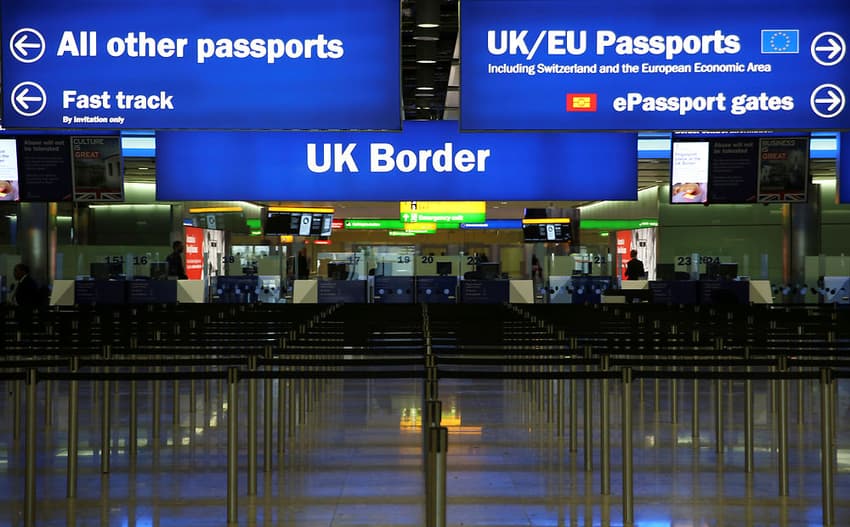UK extends virus travel ban on Denmark for 14 days

Britain has extended its travel ban on Denmark to stop the spread of coronavirus for a further 14 days, the UK government announced on Thursday.
The strict measures were first announced by the UK on November 7th in response to the threat from a mutated version of Covid-19 found in humans and linked to mink farms.
"Following advice from the Chief Medical Officer, the travel ban introduced on 7th November 2020 on Denmark will also be extended for a further 14 days," the transport ministry said.
"British Nationals, visa holders and permanent residents returning to the UK directly or indirectly from Denmark will need to self-isolate along with all other members of their household for 14 days from the date they were last in Denmark."
Last week, Denmark announced the Covid-19 mutation had jumped from mink to humans and infected 12 people in the country's north.
It has warned it could threaten the effectiveness of any future vaccine against coronavirus and ordered the culling of all of the country's roughly 17 million mink.
READ ALSO: Danish government under increasing pressure over illegal mink directive
Earlier on Thursday, top US government scientist Anthony Fauci said Denmark was right to take precautions.
The mutation could affect monoclonal antibodies used to treat severe Covid cases, he told the Chatham House international affairs think-tank via video-link.
But he said research by his team showed "it doesn't appear at this point that the mutation that's been identified in the mink is going to have an impact on the vaccines".
READ ALSO: Danish mink coronavirus data 'do not support' fears over reduced vaccine effects
The new regulations come into force on Saturday from 5am Danish time.
Comments
See Also
The strict measures were first announced by the UK on November 7th in response to the threat from a mutated version of Covid-19 found in humans and linked to mink farms.
"Following advice from the Chief Medical Officer, the travel ban introduced on 7th November 2020 on Denmark will also be extended for a further 14 days," the transport ministry said.
"British Nationals, visa holders and permanent residents returning to the UK directly or indirectly from Denmark will need to self-isolate along with all other members of their household for 14 days from the date they were last in Denmark."
Last week, Denmark announced the Covid-19 mutation had jumped from mink to humans and infected 12 people in the country's north.
It has warned it could threaten the effectiveness of any future vaccine against coronavirus and ordered the culling of all of the country's roughly 17 million mink.
READ ALSO: Danish government under increasing pressure over illegal mink directive
Earlier on Thursday, top US government scientist Anthony Fauci said Denmark was right to take precautions.
The mutation could affect monoclonal antibodies used to treat severe Covid cases, he told the Chatham House international affairs think-tank via video-link.
But he said research by his team showed "it doesn't appear at this point that the mutation that's been identified in the mink is going to have an impact on the vaccines".
READ ALSO: Danish mink coronavirus data 'do not support' fears over reduced vaccine effects
The new regulations come into force on Saturday from 5am Danish time.
Join the conversation in our comments section below. Share your own views and experience and if you have a question or suggestion for our journalists then email us at [email protected].
Please keep comments civil, constructive and on topic – and make sure to read our terms of use before getting involved.
Please log in here to leave a comment.